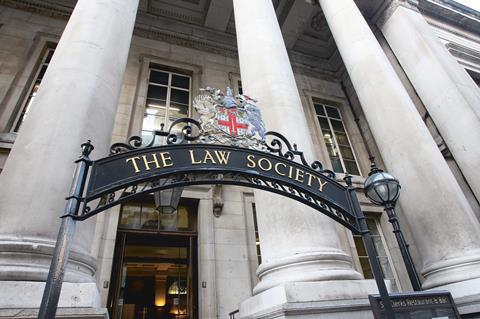A judicial review of the lord chancellor’s decision not to increase criminal legal aid fees for solicitors by the minimum 15% recommended by a government-commissioned review will be heard in the weeks leading up to Christmas, the Gazette has learned.
The timetable for the Law Society’s legal challenge was discussed at a case management hearing before Mr Justice Jay at the Royal Courts of Justice last week, where Chancery Lane’s legal team also revealed it expects a fight over disclosure.
The substantive hearing will be listed for three days between 9 November and 22 December. The case will be heard by two judges.
Thomas de la Mare KC, for the Society, told the court the case was one 'that obviously merits a rapid hearing'. He added that there was a real prospect an application will be made for cross-examination and a ‘contentious’ application for disclosure.

He said: ‘We originally asked what were the criteria by which you assess whether or not there is a problem in any particular area in terms of quality of coverage provided by the relevant solicitors. We assumed there would be some form of criteria or metric to assess whether or not service in any particular area is up to scratch. We have been told there are no such criteria at all and instead everything is by way of individual assessment of any particular area.’
This raised two problems, de la Mare continued.
‘There must be some criteria by reference to which an individual assessment is conducted. There needs to be some judgemental underlying of that exercise. What we have been given simply does not grapple with that issue.’
The court heard there was ‘literally no data’ on things like how long defendants have to wait at the police station to see a solicitor and how many give up their right to see a solicitor. Such data was important to determine whether or not there is an access to justice problem, de la Mare said. ‘If there is no such data it will likely prompt an amendment of grounds to alleged Tameside failure.' (The duty of a decision-maker to take reasonable steps to acquaint itself with relevant material is known as the ‘Tameside duty’.)
During the hearing Jay granted the Law Society’s application to adduce expert evidence from Abi Adams-Prassl, an economics professor at the University of Oxford.
Catherine Dobson of 39 Essex Chambers appeared for the lord chancellor; Thomas de la Mere KC of Blackstone Chambers, instructed by Bindmans, appeared for the Law Society.
This article is now closed for comment.



























9 Readers' comments